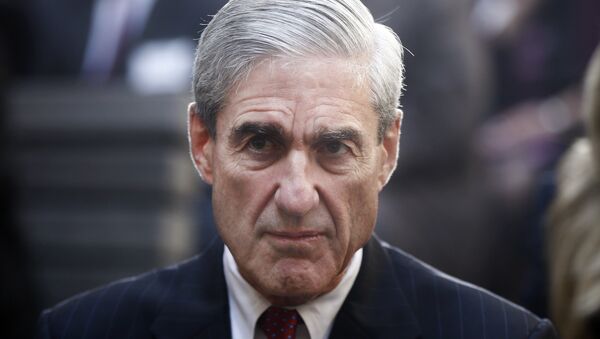House Democrats achieved a legal victory Tuesday after a federal appeals court panel granted access to secret grand jury material from the Robert Mueller Russia probe report.
The decision was authored by Judge Judith Rogers, an appointee of US President Bill Clinton, who said that potential future impeachment attempts were sufficient to permit the release of grand jury documents, which was agreed to by a majority of the appeals court.
“The courts cannot tell the House how to conduct its impeachment investigation or what lines of inquiry to pursue, or how to prosecute its case before the Senate,” Judge Rogers said, in an opinion that was joined by Judge Thomas Griffith.
The 2-1 decision by the DC Circuit Court of Appeals sided with a previous ruling by a lower court judge in favour of the House’s ability to observe passages redacted from the public version of the Mueller report, a 448-page document that records the two-year investigation into allegations of links between the 2016 Trump election campaign and Russia.
The report, released in April 2019, delves into attempts by Trump and his campaign to impede the investigation.
The appeals court confirmed that the House Judiciary Committee has a "compelling need" to view the redacted details which prosecutors accumulated from witnesses.
Specifically, the ruling gives lawmakers the right to the entirety of almost 1,000 redacted words, phrases, sentences, paragraphs and whole pages, as well as interviews and memos included in Mueller's review.
Despite the House’s victory on Tuesday however, it does not guarantee that Congress will immediately be able to observe the evidence, as the case could still come to a Supreme Court review.
Judge Neomi Rao, the only Trump appointee on the panel, dissented the ruling claiming that the lower court had the authority to lift the veil of secrecy on the grand jury materials, but that the Justice Department could not open them to Congressional review.
She highlighted the Senate's acquittal of Trump, who was impeached by the US House in December 2019, in the senate as a reason for the House not needing access to Mueller's records.
“A reasonable observer might wonder why we are deciding this case at this time. After all, the Committee sought these materials preliminary to an impeachment proceeding and the Senate impeachment trial has concluded”, Rao wrote.
“The majority simply turns a blind eye to these very public events", she asserted.
Rao wrote that the courts were unable to keep up with the speedy political process and that the case had "moved on without our decision".
Initially, the Justice Department permitted House members to see the majority of the redacted information in the Mueller report, but declared that it could not distribute the grand jury information absent of a court order. Democrats pressed for Attorney General Bill Barr - a Trump appointee - to seek the order, but the AG refused.
The process of sharing underlying FBI interview reports — or 302s — with Congress came to a halt after the House formalised the impeachment inquiry into the president and the Trump White House ceased to cooperate with impeachment-related probes.
The legal tussle over the remaining Mueller evidence emerged following the conclusion of the December 2019 impeachment of Donald Trump regarding allegations that the preside had tried to pressure the Ukrainian government into investigating a political rival - former Vice President and Democratic primary frontrunner, Joe Biden.
Prior to the impeachment, Mueller was investigating alleged Russian interference in the 2016 election, which saw Trump narrowly defeat Democratic rival Hillary Clinton in the electoral college.
Although Trump was impeached by the US House of Representatives on 18 December, 2019 - the 3rd US president in history to be impeached - the US Senate on February 5 subsequently voted to allow him to retain his tenancy in the White House.


